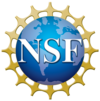
Quantum Industry Day will bring together scientists from academia and industry for an interactive exchange on directions and opportunities in quantum computing.
Schedule Overview:
8:50 a.m. - 9:20 a.m. Breakfast and Check-in
9:20 a.m. - 9:30 a.m. Welcome
9:30 a.m. - 9:55 a.m. Terry Rudolph (PsiQuantum)
9:55 a.m. - 10:35 a.m. Sergio Boixo & Craig Gidney (Google)
10:35 a.m. - 11:00 a.m. Break
11:00 a.m. - 12:45 p.m. Jerry Chow (IBM), Oskar Painter (AWS), Shengtao Wang (QuEra), Patty Lee (Quantinuum)
12:45 p.m. - 2:00 p.m. Lunch (catered)
2:00 p.m. - 3:40 p.m. Birgitta Whaley (UC Berkeley), Elie Bataille (Caltech), Ewin Tang (Simons Institute), William Kretchmer (Simons Institute)
3:40 p.m. - 4:30 p.m. Break & Networking
4:30 p.m. - 5:30 p.m. Panel Discussion moderated by Dan Stamper-Kurn (UC Berkeley)
6:00 p.m. Dinner at Faculty Club
Detailed Schedule:
8:50 a.m. - 9:20 a.m. Breakfast and Check-in
9:20 a.m. - 9:30 a.m. Welcome
9:30 a.m. - 9:55 a.m. Terry Rudolph (PsiQuantum)
Title: PsiQuantum: Update
Abstract: I will give a brief summary of where PsiQuantum is at, from their kilometer scale facilities down to angstrom scale components.
9:55 a.m. - 10:35 a.m. Sergio Boixo & Craig Gidney (Google)
Title: Quantum computing at Google
Abstract: We will present Google's quantum computing roadmap. We will discuss recent breakthroughs in scaling quantum error correction. We will also discuss a computational task that surpasses the capabilities of classical supercomputers. We will present new findings on a phase transition related to this computational task, encompassing recent spoofing algorithms. Finally, we will elaborate on our transition towards early fault tolerance, presenting a novel result in magic state cultivation that eliminates the need for costly T gate factories.
10:35 a.m. - 11:00 a.m. Break
11:00 a.m. - 12:45 p.m.
Jerry Chow (IBM)
Title: From utility-scale quantum computing towards quantum-centric supercomputing
Abstract: With a large number of quantum demonstrations being performed at the scale of 100+ qubits, quantum computing is now firmly in the era of utility where quantum computers can serve as a scientific tool to explore a new scale of problems that classical methods may not be able to solve. This scale, combined with advances in algorithms, is fundamental to enabling quantum advantage; the point where quantum computers can faithfully run one of more tasks providing business or scientific value with more accuracy, efficiently, or cost-effectiveness than with classical computation alone.
I will highlight the progress in both quantum hardware and software from IBM for performance as well as ease of use to function at this level. I will also describe the path forward along our IBM Quantum roadmap as we envision a future combining classical high performance computing methods with quantum towards quantum-centric supercomputing
Oskar Painter (AWS)
Title: Scalable, hardware-efficient error correction with bosonic qubits
Abstract: In this talk I will give a brief introduction to recent work [1] at the AWS Center for Quantum Computing to realize hardware-efficient error corrected superconducting quantum circuits based on the concatenation of bosonic qubits with large noise bias. In particular I will focus on elucidating the key technical advances that were made in the present work, while providing a clear-eyed view of future technical challenges and opportunities for this architecture.
References: [1] Putterman, et al., “Hardware-efficient quantum error correction using concatenated bosonic qubits,” arXiv:2409.13025.
Shengtao Wang (QuEra)
Title: QuEra’s Neutral-Atom Technology and Progress
Abstract: In this talk, I'll describe recent progress on QuEra's neutral-atom technology, including QuEra's analog quantum device for scientific applications, digital gate-based system with reconfigurable architecture, and some recent theory results on quantum error correction.
Patty Lee (Quantinuum)
Title: Path to Scale QCCD Architecture for Trapped Ion Quantum Computers
Abstract: The quantum charge-coupled device (QCCD) architecture allows trapped ion systems to scale up to a large number of qubits while maintaining high-fidelity operations. In this talk, I will discuss recent results from Quantinuum's H-Series trapped ion quantum computers, including quantum supremacy and break even quantum error correction demonstrations. I will also present recent developments toward scaling up QCCD, including integrated photonics, transport of ions in a multi-junction trap, and high fidelity quantum operations.
12:45 p.m. - 2:00 p.m. Lunch (catered)
2:00 p.m. - 3:40 p.m.
Birgitta Whaley (UC Berkeley)
Title: Finding Quantum Advantage for Quantum Chemistry
Abstract: I shall discuss the issue of quantum advantage for computation of electronic states and energies of molecular systems and then focus on one important class of problems for which we can expect both algorithmic and practical quantum advantage from implementing key components of a computation on a quantum processor.
Elie Bataille (Caltech)
Title: Scaling up atom array quantum processors to several thousand qubits
Abstract: Scaling up atom array quantum processors to several thousand qubits.
Ewin Tang (Simons Institute)
Title: A perspective on Gibbs sampling
Abstract: I will survey the current literature on algorithms for Gibbs sampling, with an eye towards quantum advantage. I'll synthesize this into a view on the field as it stands, and an outlook for where it could go in the future.
William Kretchmer (Simons Institute)
Title: Towards an Unconditional Quantum Information Advantage
Abstract: In this talk, I will explain an experimental proposal by Aaronson, Buhrman, and myself to demonstrate a new, qualitatively different form of quantum advantage. It aims to show unconditionally that a system of n qubits requires >>n bits of classical information to describe, by leveraging separations in one-way communication complexity. I'll also discuss the prospects of performing this experiment, which seem well-suited to current trapped-ion hardware. Based on arXiv:2302.10332.
3:40 p.m. - 4:30 p.m. Break & Networking
4:30 p.m. - 5:30 p.m. Panel Discussion moderated by Dan Stamper-Kurn (UC Berkeley)
6:00 p.m. Dinner at Faculty Club
Learn more about our Industry Partnerships program here.
Supported by:


All scheduled dates:
Past
No Past activities yet


